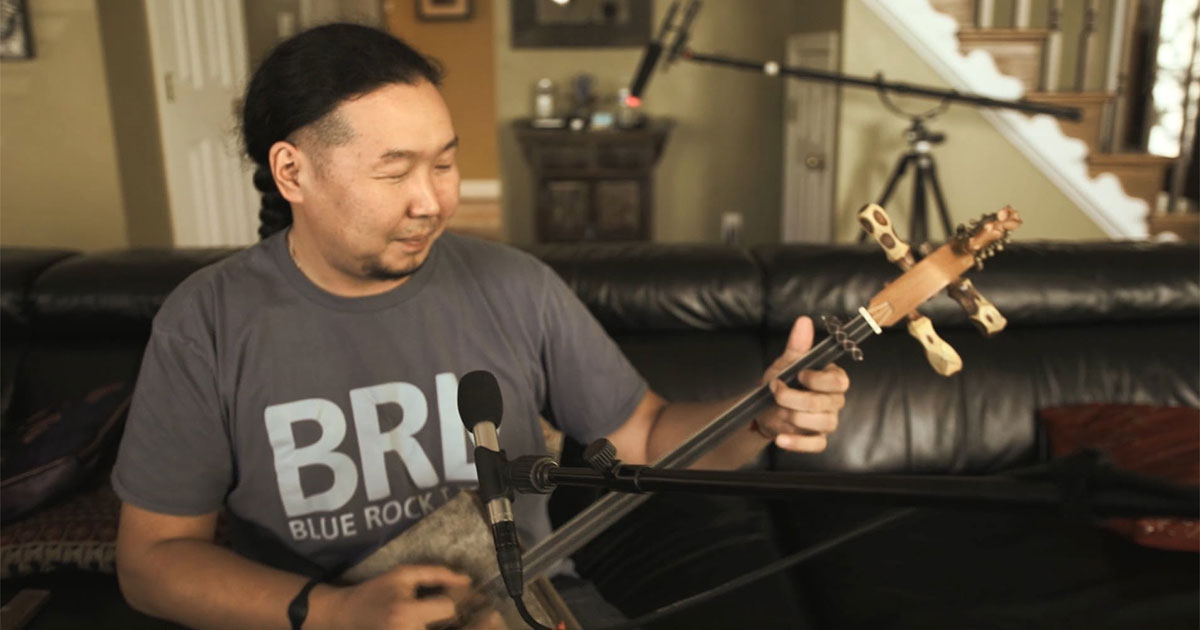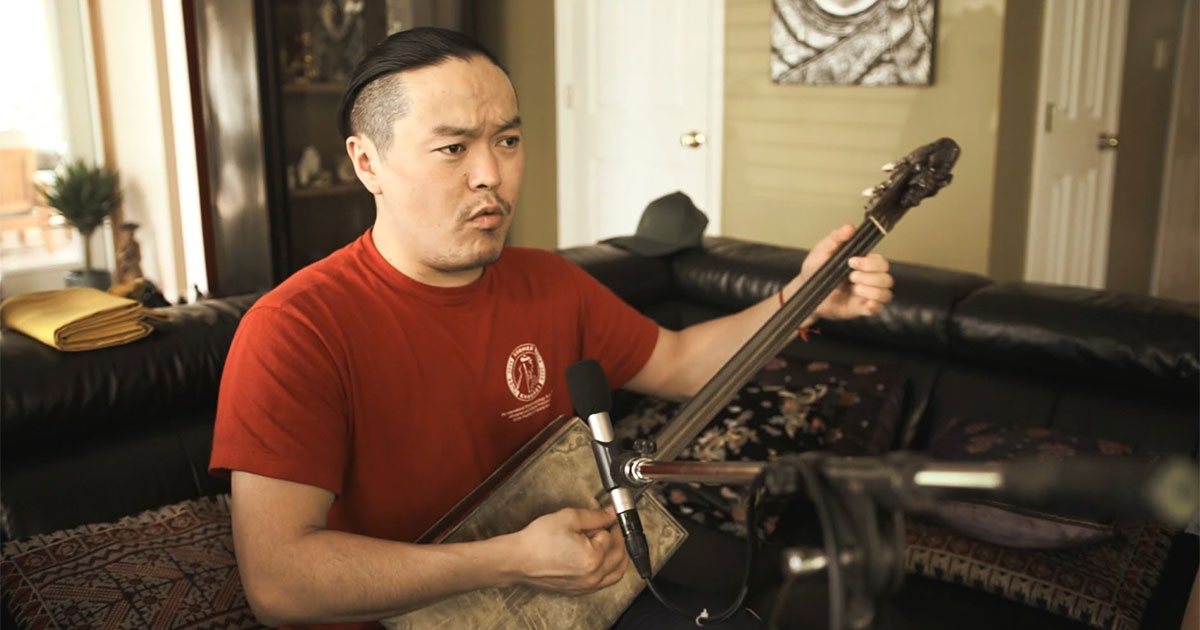
Red Baraat will perform both days of the festival.
Photo by Richard Gastwirt
The Freer Gallery of Art opened to the public in 1923, and the Arthur M. Sackler Gallery welcomed its first visitors in 1987. Today, the Smithsonian’s Freer|Sackler makes inspiring connections among Asia, America, and the world.
Over its fifty-year history, the Smithsonian Folklife Festival has explored the power of culture and heritage in contemporary life. This includes working with artists whose experiences offer multiple vantage points into considering the complexity of Asian and Asian American cultures and identities, from the presentations by a D.C. Chinatown lion team at the first Festival in 1967 to the interactions extending from collaborations with communities from East to Central Asia, across the Mekong Delta and along the historical Silk Road.
llluminAsia culminates Freer|Sackler’s two-year renovation project, welcoming the public to visit the revitalized building and its new exhibitions. Outdoor areas—including the Enid A. Haupt Garden, the Freer Plaza, and on the National Mall—are transformed with an Asian food market, arts demonstrations and activities, and live music and dance performances by local and international artists.
Activities occur inside and outside the Freer|Sackler. For a full list of concessionaires, artists, and activities, visit the IlluminAsia festival site.

Photo by Shervin Lainez
Red Baraat is a Brooklyn-based band that delivers a gut-busting fusion of jazz, hip-hop beats, rock muscle, funky go-go, and scalding hot bhangra. Led by dhol drummer and composer Sunny Jain, the band can mesmerize an audience with a funk groove, turn a switch, and drive the same crowd to the brink of delirium.
Since its formation in 2008, the band has taken its magic far beyond New York City. Their second studio album in 2013, Shruggy Ji, debuted at No. 1 on the Billboard world music charts and propelled them on a three-year world tour. Their third studio album, Bhangra Pirates, was released in March 2017 and, as Jain describes it, “embodies that push and pull in all of us … free spirit, community, rebellion, tradition, and new journeys.”




Photo courtesy of the artist
World trance vocalist Mamak Khadem blends her roots in the ancient poetry and music of the Persian masters with a bold and revolutionary new sound. Born in Iran, where she was part of the Children’s Choir for National Radio and Television of Iran, Khadem was trained in Persian classical music from an early age.
After immigrating to the United States, she continued this training but also sought common musical threads and connections across cultures. Khadem was previously a member of the cross-cultural fusion ensemble Axiom of Choice. Her most recent album, The Road, features a twenty-seven-piece ensemble and explores the traditional melodies of Iran, Bulgaria, Serbia, Greece, and Arab-Andalusia.


Photo courtesy of the artist
Pioneering turntablist and composer DJ Qbert (aka Richard Quitevis) keeps the evening’s pulse elevated by showing off his technical virtuosity and mixing innovation. Based in the San Francisco Bay Area, Qbert emerged out of the Filipino mobile DJ scene of the 1980s and ’90s and is a founding member of the Invisibl Skratch Piklz, a legendary turntable crew that invented the concept of a DJ band. A DMC World DJ champion and Hall of Fame inductee, Qbert helped revolutionize turntablism, taking it to new technical and creative heights.
In addition to his recording projects and live performances around the world, he promotes scratch DJ culture through the development of his record catalog as well as additional tools which include Qbert Skratch University, an online interactive school and community for DJs.


Photo by Vladimir Mongush
Hailing from Tuva, a small republic in the heart of Central Asia, Alash showcases a mastery of throat singing, a technique for singing multiple pitches simultaneously. Committed to preserving and developing the Tuvan musical tradition, this trio makes music about generations, stability and change, depth and spontaneity, growth and loss, roots and breezes.
The three members are graduates of the Kyzyl Arts College and students of Kongar-ool Ondar, renowned master throat singer and member of the Tuvan parliament who was featured in the movie Genghis Blues.
Trained in traditional Tuvan music since childhood, they also cultivate a love of Western music—and sometimes include nontraditional instruments, old and new, drawing upon their knowledge of complex rhythms and Western harmonies to expand their musical possibilities. Smithsonian Folkways Recordings recently released the group’s latest album, Achai.
Alash performs with guest artist Shodekeh Talifero, a professional beatboxer and vocal percussionist currently working in the Baltimore area and beyond.



Photos courtesy of the artists
Founded by cellist Yo-Yo Ma in 1998, the GRAMMY Award-winning Silkroad Ensemble creates music that engages difference, sparking radical cultural collaboration and passion-driven learning to build a more hopeful world. The musicians of this collective represent dozens of artistic traditions and countries, from Spain and Japan to Syria and the United States, and perform in many configurations and settings.
Silkroad musicians are also teachers, producers, and advocates who lead professional development and musician training workshops, create residency programs in schools, museums, and communities of all sizes, and experiment with new media and genres to share their approach to radical cultural collaboration. The group has recorded six albums, recently including Sing Me Home, released in April 2016. They were also the subject of the documentary The Music of Strangers: Yo-Yo Ma and the Silk Road Ensemble.
The ensemble is also scheduled to perform at Freer|Sackler the weekends of December 8 to 10, 2017, and May 18 to 20, 2018.


Photos courtesy of the artists
Gusti Sudarta is an Indonesian shadow puppet master. Visitors will enjoy a rare opportunity to experience Balinese shadow puppet theater (wayang), accompanied by a small gamelan (traditional bronze percussion ensemble). Using intricately carved and painted puppets made from buffalo hide, Sudarta tells “The Legend of Sutasomo.”
Sutasomo is a bodhisattva who abandons court life to study in the forest with the goddess Kali. He battles monstrous demons before taking the throne of his father’s kingdom.
For his performances, Sudarta is joined by members of Gamelan Raga Kusuma, which he cofounded at the University of Richmond, where he is currently in residence. These performances are sponsored by the Embassy of Indonesia.


Photos courtesy of the artists
Washington Samulnori is a D.C. music troupe dedicated to preserving and performing Korean percussion traditions. With a repertoire derived from farmers’ band music (nong-ak), the group synthesizes the influences of folk and religious music. Founding director Sebastian Wang is a D.C. native and a graduate of the Korean National University of Arts in Seoul, Korea. These performances are sponsored by the Korean Cultural Center.

Photos courtesy of the artists
Rizqi Rachmat is a dancer and dance educator who combines years of urban dance, freestyle/fusion hip-hop, and performance choreography with martial arts styles. He is a founding member and artistic director of Urban Artistry, an international urban arts culture and education project based in Washington, D.C. He is mentored by Junious “House” Brickhouse.
Rachmat has extensive experience in directing dance and hip-hop theater productions and gaining competitive hip-hop dance and martial arts championship titles. His movement expertise involves a fusion of traditional Indonesian dance and Shaolin Kung Fu (wushu).
He believes that his purpose in movement and art are rooted in freedom—that this truth resonates throughout his work as a cultural artist and community leader. His work and artistic portfolio spans the cultivation of urban dance culture and explorations into the intersections of art, civil society, and conflict resolution.


Photo by Paul Gordon Emerson
Asanga Domask is an educator, performer, choreographer, arts administrator, and founder and artistic director of SerendibDance, a Sri Lankan traditional and folk dance company based in the Washington, D.C., area. She grew up in Sri Lanka, where she devoted most of her childhood to the art of traditional dance—kandyan and “low country”—under prominent dance masters, including Nandana Balasuriya, Chitrasena and Vajira Dias, and Gyana Magammana.
She joined CityDance Ensemble in 2005 and has held many positions within the company. She has choreographed and performed extensively in local and international venues. Since 2010, she has directed and choreographed the annual Sri Lankan dance concerts held at CityDance Theater at Strathmore to help preserve the heritage of Sri Lankan dance.


Photos courtesy of the artists
District of Raga, previously known as DC Raga Jam, was launched in January 2017 with a vision of creating a space for practitioners and lovers of Indian classical music to gather for musical dialogue and community within Washington, D.C. Their inspiration came from the hugely successful community of musicians in New York City known as Brooklyn Raga Massive.
The event is currently held at Bossa Bistro & Lounge in Adams Morgan on the last Wednesday of every month. The event showcases a curated, featured artist followed by an open jam session with a focus on representing traditional and authentic Indian classical music as well as multicultural musical traditions. District of Raga is curated, hosted, and organized by cofounders Nistha Raj and Avi Shah.


Photos courtesy of the artists
DJ Ayes Cold (aka Ayesha Chugh) is a “genre-nonconforming” club and bass music DJ from Washington, D.C. From footwork and grime to dancehall house and hip-hop, Ayes is known for her eclectic selections. She has backed rising artists like Princess Nokia, deejayed at festivals like Bonnaroo, Trillectro, Broccoli City, and South by Southwest, and toured as part of Madame Gandhi. Ayes has also opened for Goldlink, Shabazz Palaces, Gaslamp Killer, and Tokimonsta.

Photos courtesy of the artists
The Pinstriped Rebel (aka Les Talusan) spins all-vinyl sets, drawing from her eclectic collection of pop, indie, and underground hits, as well as rare, obscure gems. Born and raised in Manila, Philippines, and now living in D.C., she has been DJing at clubs and playing in bands since she was young. With twenty years of experience, and a reputation for her perfectly crafted mixes, she has a long history of supporting AAPI, LGBT, and women-focused organizations.

Photos courtesy of the artists
Kwon Myoung Won (aka Mook Jae) is a Maryland-based artist who creates painting and calligraphic work that draws upon his Korean heritage. He explains, “In Korea I learned and practiced traditional techniques, but now I experiment with new techniques,” he says. “I try to bring the good of both my past and present, tradition and contemporary ways so that what I create will truly reflect my life.” This demonstration is sponsored by the Korean Cultural Center.


Photos courtesy of the artists
Multidisciplinary artists CHELOVE (Cita Sadeli), MASPAZ (Federico Frum), and SUPERWAXX (Mia Abu-Bakr) bridge illustration, design, and D.C.’s graffiti scene. Working collaboratively and independently, they have created projects in D.C. and around the world. Drawing inspiration from pop culture, the natural environment, their multicultural heritage, and the creative energy of IlluminAsia, they will live paint a mural that explores cultural hybridity, identity, and migration.

Photos courtesy of the artists
Stephan Berwick is an American pioneer in Chinese martial arts and the founder of the True Tai Chi program in Washington, D.C., an official branch of the historic Chen Village Taijiquan Academy. He is a thirteenth generation Chen-style Taijiquan expert, long recognized as an early proponent of mainland Chinese martial arts. This presentation is sponsored by the DC Mayor’s Office on Asian and Pacific Islander Affairs.

Photos courtesy of the artists
Amadou Kouyate is the 150th generation in a family of Manding Diali, or oral historians and musicians of West Africa. Born and based in Washington, D.C., he plays the twenty-one-string kora and the djembe and koutiro drums, with a repertoire ranging from centuries-old West African songs to contemporary original compositions incorporating blues and jazz.
Kouyate has studied in Mali, Senegal, Guinea, and Cote d’Ivoire with master musicians of the Djali tradition including Djimo Kouyate and Toumani Diabate. He was also an adjunct lecturer of African music and ethnomusicology at the University of Maryland, director of the African Drum Ensemble and artist-in-residence at Montgomery College, and an artist-in-residence at the Strathmore Music Center.
This performance is presented in partnership with the Smithsonian’s National Museum of African Art.
